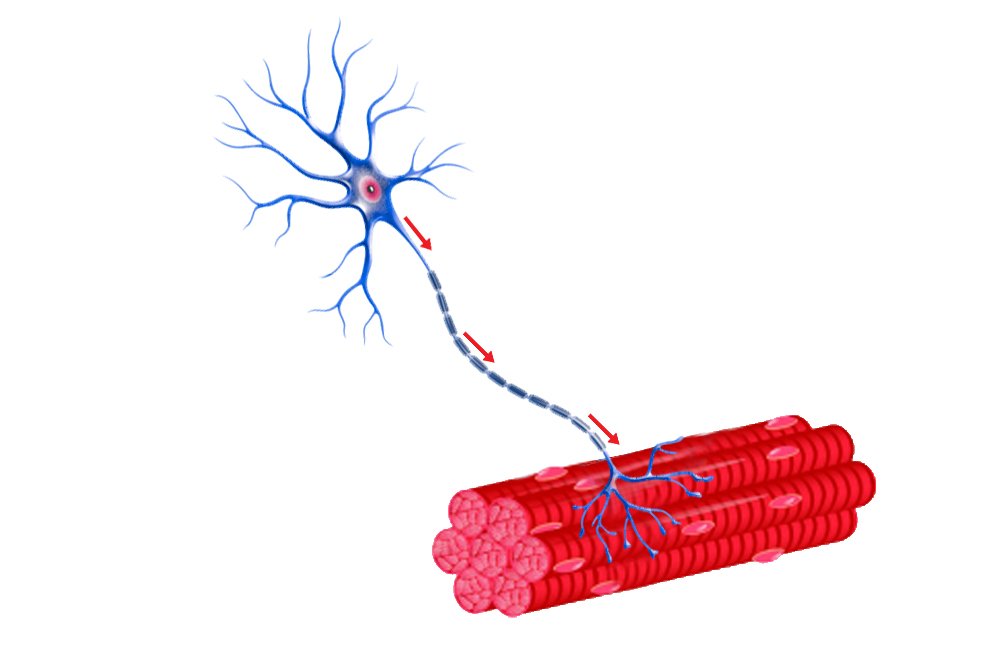Table of Contents (click to expand)
The simple answer for why this trembling occurs and is it normal is muscle fatigue. Muscular Fatigue is the state when our muscles grow tired. The reason for this trembling is due to the fact that when muscular fatigue occurs, some of the motor units stop functioning for a time. The pressure is then put on the working units. As the remaining motor units begin to work in tandem, they give rise to sudden jerky movements, which we feel as trembling.
Have you ever been lifting something really heavy when your arms suddenly start to tremble? Or when you’re at the gym, finishing your last set of leg presses, have your legs ever begun to quiver? Some people even consider this trembling as a sign of whether you’ve pushed your muscles to their maximum capacity. The question is, why does this trembling occur and is it normal? Or is it something to be worried about?
The simple answer for why this reaction by the body occurs is muscle fatigue.
Recommended Video for you:
Muscular Fatigue
As the term suggests, muscle fatigue is simply the state when our muscles grow tired. To understand this phenomenon, it is better to first understand what happens to our muscles when we exercise or lift weights. As you likely know, the signal for the muscle to move comes from the spinal cord, through the neurons and down to our muscles. Each neuron connects to a number of muscle cells, rather than a single muscle cell. The neuron, along with the muscle cells to which it is connected, is known as a motor unit.

The size of this motor unit will determine the accuracy of the movement of the muscles. For instance, the motor units in the arms and legs will be larger in size, with each nerve controlling roughly 1500-2000 muscle cells. When we talk about the act of talking, however, the movements must be more precise, so the motor units are smaller, typically consisting of a nerve fiber connected to a handful of muscle cells. When performing an action, the motor units do not move together. Instead, they move in a highly unsynchronized or irregular pattern. This means that, while some motor units contract, other will expand. Due to this unsynchronized motion, our muscles appear to be moving smoothly.
When muscular fatigue occurs, some of the motor units stop functioning for a time. The pressure is then put on the working units. As the remaining motor units begin to work in tandem, they give rise to sudden jerky movements, which we feel as trembling.
Why Does Muscular Fatigue Occur?
The answer to this question also holds the key to how we can reduce the trembling, or rather prevent the fatigue from occurring in the first place. Our muscles can get tired for 2 main reason – nerves and nutrients. As mentioned before, we know that the nerves carry signals from the spinal cord to the muscles. Our nerves are accustomed to carrying signals dictating the generation of muscular force that is much less than the maximum force our muscles can generate or bear. When we lift weights, or exercise, the muscles need to generate a higher amount of force. This means an increase in the frequency and strength of the signals. As this isn’t a “normal” circumstance, it tires the nerves, meaning that they may not be able to bear the high frequency. Regularly training the muscles can make them better at carrying high-frequency signals for a longer time.

The other potential reason is a shortage of nutrients and water. As we know, the process of conducting electrical impulses requires various nutrients, such as calcium, potassium etc., in addition to the needs of the muscles themselves, e.g., nutrients and water. When our muscles are working in overdrive, such as when we are lifting weights or exercising, they use up these nutrients faster than normal. If these are not replenished at the same speed, the conduction of impulses will be affected, which will again lead to some motor units dropping out of the action. The same is true for water content. If there is a lack of water, the muscles will become dehydrated, and fatigue will set in.
While there may be various actions that cause muscle fatigue, the underlying reason will be one of the 2 above-mentioned causes.
Is Muscle Fatigue Bad And How Can It Be Prevented?
Muscle fatigue is usually a sign that your muscle has been worked to its maximum capacity for the time being. Remember, this is not usually permanent, but is rather a temporary occurrence. It’s simply your muscle telling you that it has been a good workout, but it is time to stop! Unless the fatigue persists for a long time after the cessation of the cause, or if it is uncontrollable and hinders your normal movement, the trembling is nothing to worry about. With a little rest, the muscle repairs itself, and will soon be ready to function normally once again.
Prevention of muscle fatigue can be done by remembering what causes it. Regular exercise helps to increase the amount of high-frequency impulses your nerves can endure, but if excessive sweating occurs, water and nutrients are both lost from the body. Therefore, it is essential to replenish them. Adequate amounts of water should be consumed, and some form of electrolytes should also be consumed if the workout lasts for a long time, or if it is extremely hot.

Our body almost always informs us whenever something is not right. Excessive stress and pressure on the muscles can lead to long-term damage, which is why it is so important to understand the signs of the body and pay attention to them, rather than ignore them. If something feels wrong, it’s always advisable to cease the behavior causing the discomfort, go to a doctor or seek some other form of professional help.












